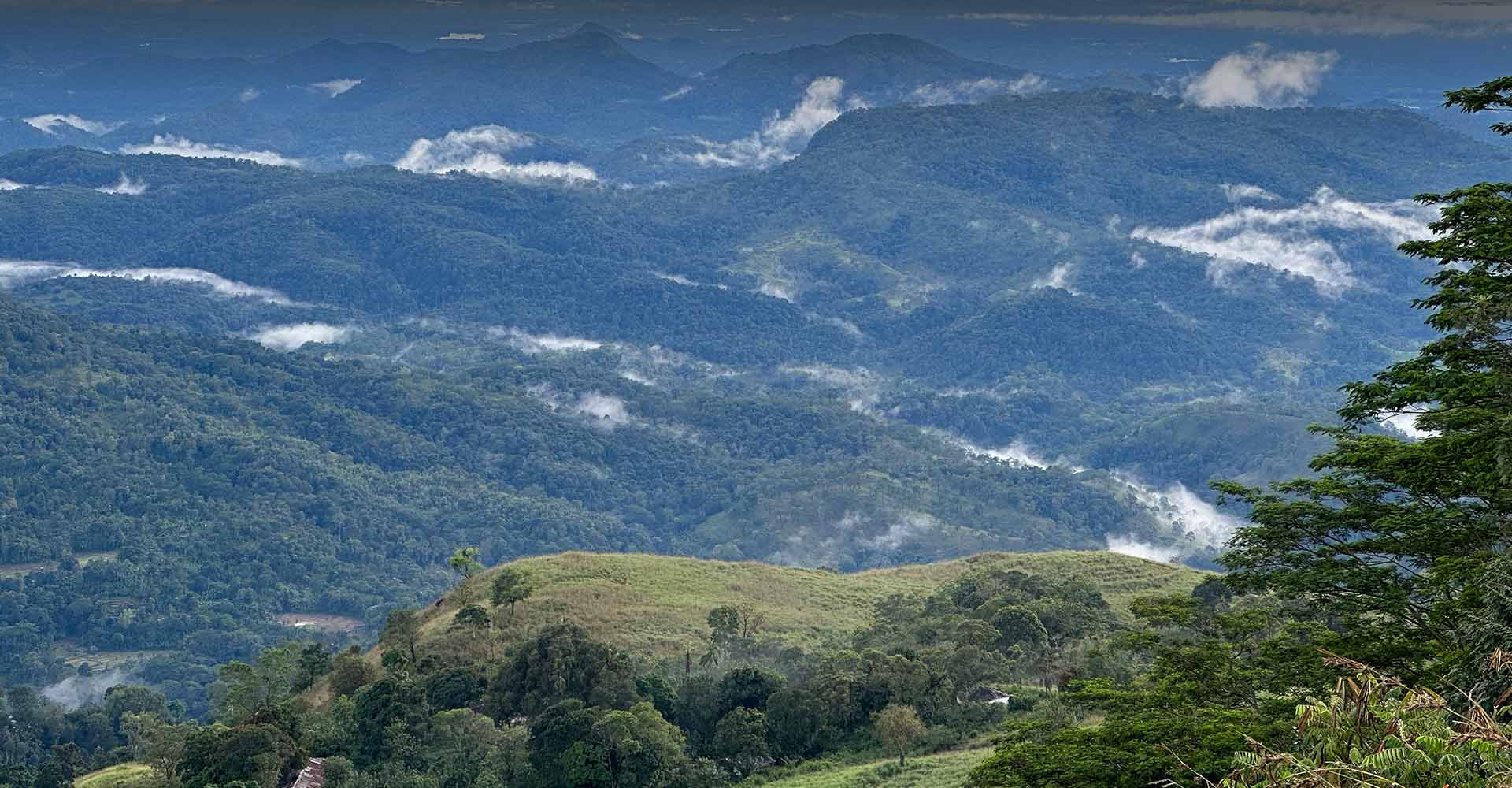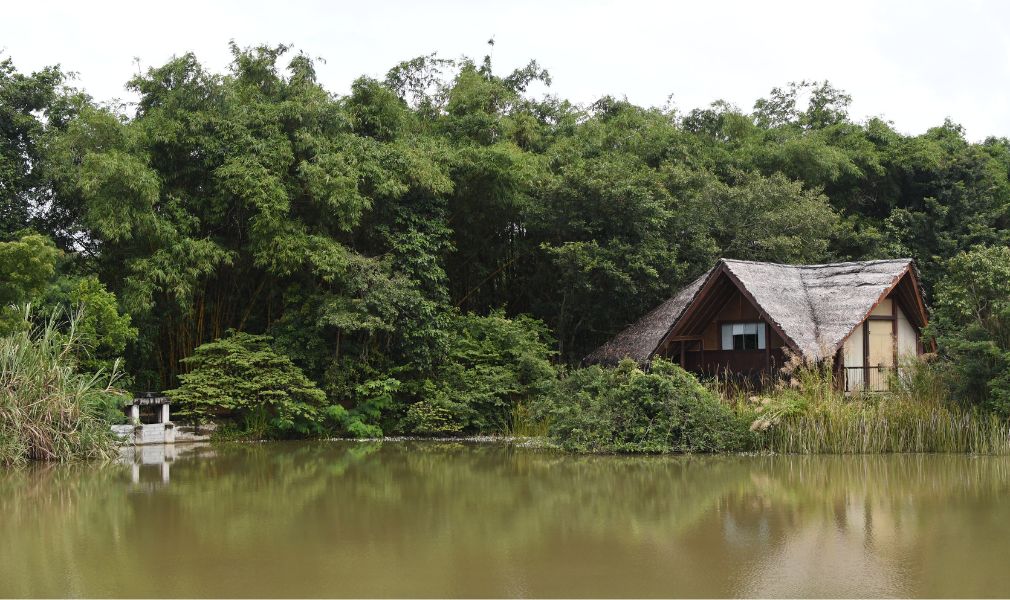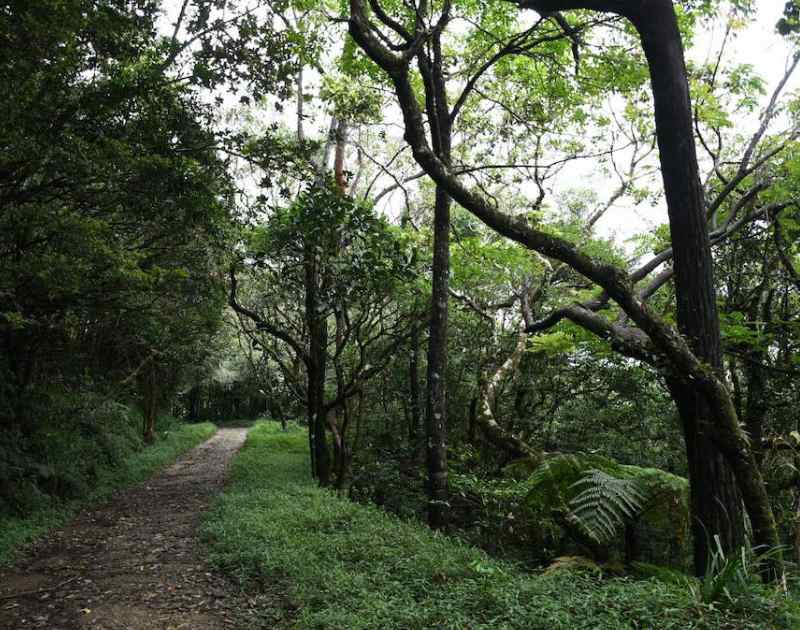
- Home
- Knowledge Insights
- How can we re-orient Sri Lanka’s tourism future?
Sri Lanka has been receiving global recognition as a must-see travel destination abundant with nature and culture. However, the Sri Lankan tourism sector is on a tightrope: balancing an expectation to drive foreign exchange inflows on one side and reacting to a rapidly deteriorating natural capital base on the other. Navigating this seemingly paradoxical relationship between economic gains and protecting the natural environment is crucial for Sri Lanka’s long-term development trajectory. A potential solution to this problem is a meaningful transition to nature-positive tourism models.
Nature-positive tourism situates regenerating nature as a central goal of the business model. For example, in addition to traditional metrics of success such as profitability, fiscal health, and footfall, the business assesses its contribution to improving the soil, air, and water quality of the surrounding environment. For a conceptual overview of the definitions and scope of nature-positivity, refer to our recently published background note.
Recently, I had the opportunity to moderate a discussion on tourism, for a CSF media series on nature-positive economic recovery, between a hospitality entrepreneur, a former tourism policy lead, and an expert on regenerative hospitality. The focus of our discussion was on how Sri Lanka can chart a path towards nature-positive tourism. This ‘Perspectives Series’ article captures four interesting takeaways from the conversation.
1. Everyone in the industry should start thinking about becoming nature-positive, though some smaller players may be constrained in making immediate changes.
One of the first questions we explored was whether the Sri Lankan tourism sector is currently at a place to rethink its future trajectory following multiple and overlapping crises from 2019. The sentiment across the room was that the capacity to enact change towards nature-positivity differed across the spectrum of actors in the tourism sector. Small enterprises, which are numerous in the industry, were struck hard by the crises. For some of them, it is a struggle to survive, so their efforts are likely entirely dedicated to reaching a minimum threshold of stability. However, large actors can and should start taking meaningful action towards nature-positivity. Panellists also emphasised that no matter how small or large, all players must seriously think about moving towards being nature-positive as that is critical to their survival in the long run.
2. Nature-positivity is crucial to the long-term profitability of Sri Lanka’s tourism sector.
Profitability and protecting the environment is often seen as a zero-sum game. However, panellists agreed that this zero-sum view only arises when the tourism business life cycle is seen through a short-term lens. When looking at the long run, a nature-positive approach was cited as a vital step towards profitability. We spoke about two reasons for this; Firstly, nature has been the core of Sri Lanka’s reputation as a tourist destination for millennia. As one panellist reminded us, for Sri Lanka to remain the ‘finest island of its size on earth’ as Marco Polo put it, protecting and regenerating our natural capital is crucial.
Secondly, the definition of luxury travel is fast evolving. As tourists now have access to a diverse range of experiences, there is a growing distinction between the different forms of luxuries sought within the tourism sector. A panellist pointed out that new forms of luxuries sought are features tied to pristine environments such as nature, silence, privacy, clean air and skies. Sri Lanka still has an abundance of this luxury to offer. However, we spoke about how unlike material forms of luxury, this new brand of luxury is a much harder resource to nurture when damaged and lost. Panellists highlighted that capitalising on these factors is vital for the long-term thriving of the tourism sector.
3. Though currently facing multiple challenges, the government has a vital role to play in transforming the tourism sector.
A strong sentiment throughout the conversation was the government’s vital role in providing leadership, signalling, and bridging gaps in the tourism sector.
Panellists noted that positioning Sri Lanka on the global map for tourism is not just a tourism question, but also stems from factors such as geopolitics. Tourists, both foreign and local, have many different preferences. Should Sri Lanka be pushed to offer something for every tourist? Or do we cater to tourist preferences which are beneficial to our potential development priorities such as being nature-positive? We discussed that these are tough questions that must be answered centrally if Sri Lanka is to meaningfully develop a nature-positive tourism sector.
We also noted that tourism requires coordination by the government on many levels. At the micro level, given that there is a relatively low barrier to entry, especially in accommodation services, individual business owners may sometimes lack a bird’s eye perspective on how the rapid mushrooming of services is impacting tourist destinations. Ella was cited as an example of this effect. At a macro level, panellists commented on how tourism impacts national priorities such as development, environment and infrastructure which requires coordination among many public and private institutions.
A panellist emphasised that the government can use tourism as a vehicle to preserve and promote nature and culture. We spoke about how the government must engage in norm-setting in tourism through education and incentives to influence stakeholder aspirations on nature. However, a panellist highlighted the challenge the government faces in being egalitarian towards the many aspirations of different players in the sector. Balancing these interests while shepherding the sector towards a specific direction is a perennial challenge the government had to navigate.
4. Creating a culture of personal and sectoral accountability is a crucial next step for Sri Lankan tourism.
A unanimous sentiment was that a culture of accountability needs to be inculcated in all stakeholders involved in the tourism sector. The accountability ranges from increasing the generation and access to high-quality tourist data through public and private platforms, responsible and purpose-driven financing and underwriting for tourism projects, to third-party verification of environment-related metrics and certification. Green financing was discussed as a vital development that will enable the capacity to transform tourism activity towards being nature-positive.
However, some of us emphasised that improving the discipline within the existing folds of financing for tourism projects was crucial before introducing new tools such as green financial instruments. This was a thought-provoking perspective to me. Amidst the prevailing emphasis on the merits of green financing as a progressive step towards channelling finance towards sustainable and nature-positive activities, we must also not forget to focus on tightening discipline in financing practices, in general, to avoid the pitfalls of mismanagement seeping into green financing as well.
Historically, Sri Lanka has been a haven for travellers who want to connect with the natural world. Our conversation, in some aspects, was a call to rediscover this country’s forgotten emphasis on co-existing with nature. Even now, there are both small and large-scale actors in the Sri Lankan tourism sector that are making significant strides towards nature-positivity, acting as bright spots for the sector at large. So there is much to draw inspiration from if we want to scale our efforts upwards.
Senith Abeyanayake is a Research Associate at CSF. The panel discussion referenced above included Nilanka Martinus, Rashmini Mather, and Chalana Perera, and was part of a series of panel discussions on moving towards a nature-positive economy, presented by the Centre for a Smart Future in collaboration with Echelon Media. Stay tuned to hear more about the series.
This is a CSF ‘Insights Series’ article, where researchers provide personal reflections on their research and engagements at the Centre. The views expressed here are the author’s own.


